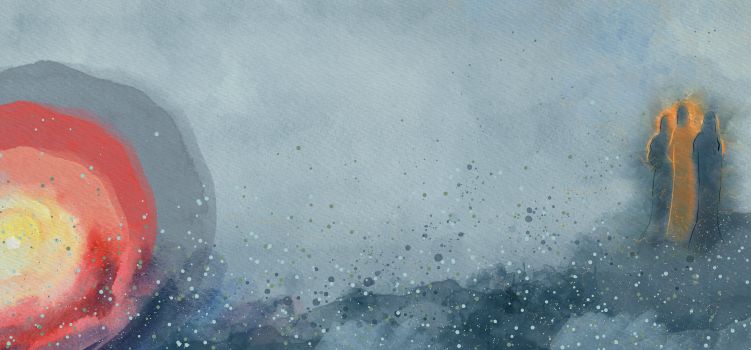
Hello everyone,
Welcome to the latest issue of our church newsletter. Our newsletter is sent out regularly to share reflections from services, Bible readings and church news to our church family. You can find previous issues on our church website here. We would love to hear from you and are always looking for uplifting and encouraging content to share in future issues of this newsletter. If you have any ideas or content that we can share, please do email them to Louise (publicity@christchurchuxbridge.org.uk)
Opening Prayer
As you sit here in this space you call your own, ready to meet the living God, remember…
You are connected to people of faith worshipping in different ways and places.
You are part of a community of saints that have worshipped for generations.
You are joined with others across the world choosing to do the same.
Here in this special space where God has been for all time you are free to worship.
So take a moment and give thanks in the quiet places of your heart:
For all you have,
All you are,
And all you might be.
Lord, all I have, all I am and all I might be I offer to you as I worship – today and always. Amen.
(Adapted from The Vine)
Reflection from 9 April
Readings: Acts 10: 34-43, Matthew 28: 1-10 and Colossians 3: 1-4
“Christ the Lord is risen today” we sang in our opening hymn. “Today” does not just mean on this day some 2,000 years ago but no other; nor does it just mean on this day now but no other. It means that every day since that first discovery of the empty tomb, Christ the Lord is risen and the truth of that declaration can be experienced.
This year the discovery of the empty tomb was read from the Matthew version of the Gospel. Last year it may have been read from the Luke version. Next year it may be read from the Mark version and, in any year, the John version may be read. Each version tells of that discovery and the first encounters with the risen Jesus in a different way.
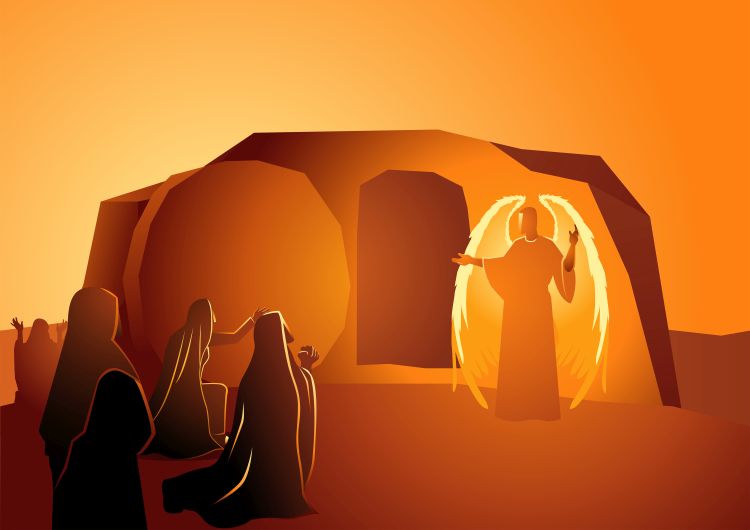
What, however, is common to all of them was that when the tomb in which Jesus’ body had been laid was seen on that day, there was no dead body of Jesus to be found. Subsequent to that discovery, the accounts of Matthew, Luke and John and the longer ending of Mark all report that his followers experienced him as alive; albeit that these encounters were often not consistent with the limitations of human life. The resurrection life of Jesus that was encountered took on a different form to the life that people had encountered prior to his death.
It is these two experiences, that link our experience of the risen Christ the Lord with those that we read of on that first Easter Day.
The risen Christ is here for us, and all people, to encounter now as he was there for Mary Magdalene and the other Mary to encounter then in our Gospel reading. But what does “risen” mean?
In our reading, the two Marys come to the tomb with expectations based upon what they know. They know that the dead body of Jesus was placed in a specific tomb when he was taken down from the cross. When they get to that specific tomb, they expect to find things as they were when the tomb was sealed with a stone. They expect to be dealing with the consequences of a life that has come to an end.
There are, of course, other disciples who do not feature in this account. They too will have had expectations based upon what they knew. Those expectations control their decision to stay away from the tomb for the time being, at least.
We also have our expectations. They may be based upon past experience of similar situations, they may be based upon projections extrapolated from data, they may be based upon what others have told us to expect. However they are reached; our expectations often control our behaviour and our behaviour then determines what we experience next.
According to Matthew’s account, when they get to the tomb, the two Marys find that things are quite different to what they had expected: the sealing stone has been rolled back and the tomb has no dead body. In contrast, the guards – who were placed there specifically to guard the good order expected by, and of, the authorities to ensure that nothing and nobody would disturb that expectation – have become “like dead men”. The reality that the women experience is that all their expectations have been reversed.
The issue, then, for the two Marys is to how to respond to the discovered reality when it is so different to their expectation? Can they believe what they are experiencing when it is so different to what they expect?
Into their inevitable confusion, we are told, they are met by the risen Jesus; not as he was before he was crucified, not as a resuscitated life but as someone risen beyond the constraints of human life including the constraint of human expectation. Someone whose presence is experienced “suddenly”. Someone whom they recognise as Jesus. Someone whom they can take hold of and worship.
Resurrection faith comes from experience of the risen Christ, in the reality of life:
- being with us in our confusion,
- enabling us to see what our expectations previously prevented us from seeing,
- giving us direction as to where we go from here.
The experience of the two Marys, which Matthew recounts, may have been the first; but it was not the last. The “today” in our hymn is our affirmation that the risen Jesus is our experience too.
As with the experience of the two Marys our experience of encountering the risen Jesus is not one to be kept to ourselves. They were told not just to tell the other disciples what they, themselves, had experienced but also how those they told could have their own experience.
It is good to share good news and tell others what we, ourselves, have experienced but they have not. Yet for them to move beyond what their own expectation tells them is possible and discover the good news to be true for them too; they have to have their own experience.
The sharing of the good news that “Christ, the Lord, is risen today” is not only a telling of what we have found to be true for us; but, also, a giving of how those we tell can discover this to be true for themselves.
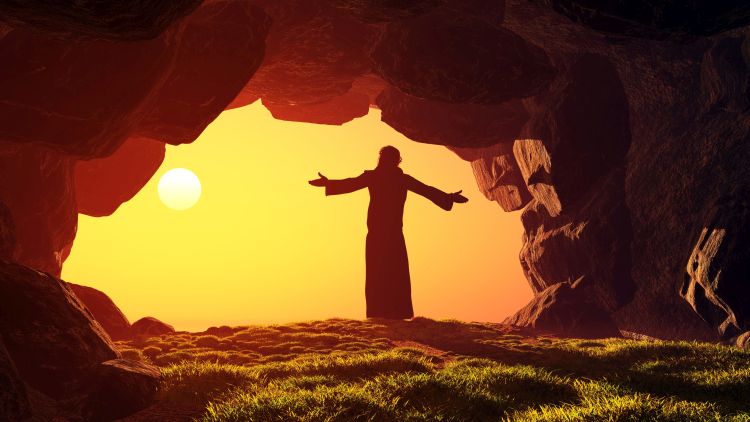
So, in our reading from Acts, the Apostle and close friend of Jesus, Peter, explains to Cornelius, an officer in the Imperial Roman army, and his relatives and close friends how Peter’s own experience can be for them too.
So too, in the extract from the letter to the Colossians, which was our Call to Worship, the experience of encountering the risen Christ is declared not just to be for Paul but one which the early Christians in Colossae are invited to experience for themselves.
These are people living in a different time and place to the two Marys as, indeed, was Paul when he had his own resurrection experience.
Today, we too live in a different time and place. For us to declare that “Christ the Lord is risen today” from a position of not just being told that that is what someone else has said and believes but what we know to be true from our own experience; we will ourselves have encountered the risen Jesus in our lives, enabling us to see that what we thought was impossible, because of our expectations, is the reality of our own experience of life.
Good news that we would love to share with others this may be. But for those whom we wish to share the good news with, they have to be in a place where they can find this good news to be true in the lived experience of their lives. Will they only have the possibility of that experience in a special place such as a church or at a special time such as a church service or if they are special people?
For many of the first disciples Galilee would have been home. It would have been the place they were most familiar with and comfortable to be. It was there that the two Marys were to tell the disciples to go for their own experience of meeting of the risen Jesus.
The risen Jesus is not only encountered in the familiar place, of course, as, indeed he was not for the two Marys, but maybe it is a good place to go to first rather than those expectations again limiting our possibilities by telling us that it is only in special places or in special times other than today or for special people other than us.
So, today, let us reflect on this account of the first Easter in Matthew’s Gospel. Let us ask ourselves whom we identify with in the story:
- Is it the guards – doing what they have been told to do? Their task to guard the preservation of good law and order expected by the authorities against anything that might threaten that. But, in dutifully carrying out the task of trying to maintain how things were, finding that they become “like dead men” because they cannot cope with the reality of the expectation breaking power of God in the risen life of Jesus.
- Is it the disciples, other than the two Marys, not moving from a place they think is safe because their expectations tell them it is dangerous to go outside – even to return to familiar territory?
- Is it the two Marys? Coming to a place of respect for lives that that have been lived but have now come to an end. Coming with expectations of what they will find. But, when they get there, discovering that all their expectations have been overturned. Not remaining there; but turning round and running in their eagerness to tell others and suddenly, on the way, being met by the risen Jesus who has a message for them of how those they are running to should not just be told about their own experience but where and how they can have that experience for themselves.
Richard Reid
Reflection from 16 April
Reading: John 20: 19-31
Three friends die in an accident and go to an orientation meeting in heaven. During this orientation meeting, they are all asked, “When you are in your coffin and your friends and family are mourning you, what would you like to hear them say about you?” Well, the first person says, “I would like to hear them say that I was a great doctor of my time and a great family man.” The second says, “I would like to hear that I was a wonderful wife and school teacher who made a huge difference to the children of tomorrow.” And the last replies, “I would like to hear them say, ‘Look, he’s moving!’”
This week, we’re continuing to think about the resurrection of Jesus. So, just to recap, because of the Sabbath, Jesus’s body had come very quickly off the cross. The plan was to place him in a tomb and come back and anoint his body later after the Sabbath had ended. Remember, Jesus’s family wouldn’t have had much money, and the tomb that Jesus was actually laid in belonged to Joseph, a rich nobleman. So, the women came back whilst it was still dark. And then there was the inspection of the tomb by Peter and John. But Mary still lingered. She saw the resurrected Christ first. She became what you could say was the first evangelist. She was nicknamed by the early church, ‘the apostle to the apostles’. She told the apostles of the resurrection of Jesus.
Now it’s still the same day and the disciples were probably meeting in an emergency session, and it’s dark again. What a roller-coaster of emotions. John, one of the twelve, could possibly have been recounting to them in the intervening time, it is finished. Now this phrase might be taking on a new significance. Notice what the text says: ‘for fear of the Jews.’ Well, hang on a minute, that’s surely a mistake, shouldn’t it say ‘for fear of the Romans’, they crucified Jesus, didn’t they? But it was at the insistence of the chief priests, who whipped up and stirred up the crowd against Jesus.
So here we are, disciples meeting in an upper room. They’re tired, they’re worn out. They were deflated and now they’re confused. Peter and John had seen the empty tomb and heard the account of Mary, but not the rest of them. Now Jesus appears and says to them, “Peace”.
‘They rejoiced when they saw the Lord. Jesus said, “Peace be with you. As the Father has sent me, so I send you.” And he breathed on them and they received the Holy Spirit.’ (John 20: 20-22) But we learn from verse 25 that Thomas wasn’t there, and when he hears about what’s happened, he is suspicious and has doubts. And then we get that famous line: “Unless I see the mark of the nails and put my finger in the mark of the nails and my hand in his side, I will not believe.”

Thomas was honest. He was brave and spoke up. It is only human to have doubts and concerns about things from time to time. It is OK to ask questions. And we need to do that more. Have questions. And when we do have doubts and matters to raise them in love and care. How often with church things do we get angry and upset with things? When things should be raised in a more gentle, loving and careful way.
We then find Jesus comes back a week later. Another lesson? How often do we pray for things and we want an instant answer. We want God to answer straight away, and we want whatever situation to be solved. Jesus comes back a week later. Jesus works to God’s time and not ours. Jesus returns a second time and says yet again, “Peace be with you.” And he addresses the concerns of Thomas. The passage ends with that great phrase of Jesus: “Blessed are others who have not seen and yet have come to believe.” And then we know afterwards that through the power of the Holy Spirit, the disciples and those with them go out to spread the message; to share the testimony of what’s happened and people come to hear the good news that Jesus has in fact been risen from the dead.
So, what lessons do we learn from this familiar reading? Well, firstly, if there were no resurrection then we wouldn’t need faith. The cross makes Christianity, for, without it, nothing else makes sense. If Jesus hadn’t been resurrected, then we’d still be under the old regime of bringing things in for confession – sacrifices, animals etc. Can you imagine having to make a sacrifice every time you sin and find an animal or a bird or whatever and comply with all the old regulations? Quite a challenge. Remember the temple curtain? It was torn in two, symbolising that a new way had opened up, and the old way was no longer required. The empty cross is proof that Jesus Christ exists.
Jesus’s tomb was empty. Had it not been, his followers would have believed they were seeing some kind of apparition. Such things were well-known in the ancient world. But Jesus had a real bodily presence. Had he not, they would concluded that an empty tomb meant that the grave had been robbed. Such things were better known in the ancient world than they are today. The combination of the empty tomb and definite solid appearances of Jesus appearing back to the disciples and to others in a bodily resurrected form is by far and best the explanation for everything that happened subsequently.
Secondly, this sense of testimony, this encounter with God. This sense of confession, when Thomas says, “My Lord and my God.” Thomas’s testimony after what took place would have been very powerful. We all need to share our testimony, not only of how we come to faith, but also the good things God is continuing to do in our lives. That not only helps us to affirm our own faith, but it builds others up. It encourages others, it helps them. Along the way, we all should be encouraged to share our testimony and our own faith stories. At that moment when we decide to follow God for ourselves, and that really is the moment of our true conversion, when we confess for ourselves that Jesus is Lord.
And then finally, this concept of calling. Jesus says to his disciples when he’s back in that room, “So I send you.” Notice that God doesn’t give them a great plan, saying “This is what you are to do. Follow this: step 1… step 2… step 3…” He just says, “I’m sending you.” Yes, the disciples have been trained for the past three years, but he orders them to be sent: “Go. You are blessed and equipped,” and then he blows on them and they receive the Holy Spirit.
We’re all called to play our part. That doesn’t just mean examining our physical gifts, but also our spiritual ones; the ones that God has given to us. Do you know what they are? Have you asked God to show them to you? And have you spent time considering what God might be calling you to do next? Step up, step down, move sideways, help. Serve the church in a new way. Become an elder. Become a Boys’ Brigade officer. Help with the youth work and the children, be more involved in mission, be more involved in service, become a worship leader, preacher, deacon, presbyter, missionary. Work behind the scenes in the church with the catering, the IT. There are literally hundreds of jobs to be done in the church and the kingdom today. God is sending us all somewhere to do a task for him. So, to recap, we have the cross, we have our confession, we have our calling. What is God calling you to do? “So, I send you”.
Revd Andrew Pottage
Readings for 23 April
Luke 24: 13-35 (NIV)
On the Road to Emmaus
13 Now that same day two of them were going to a village called Emmaus, about seven miles from Jerusalem. 14 They were talking with each other about everything that had happened. 15 As they talked and discussed these things with each other, Jesus himself came up and walked along with them; 16 but they were kept from recognising him.

17 He asked them, “What are you discussing together as you walk along?”
They stood still, their faces downcast. 18 One of them, named Cleopas, asked him, “Are you the only one visiting Jerusalem who does not know the things that have happened there in these days?”
19 “What things?” he asked.
“About Jesus of Nazareth,” they replied. “He was a prophet, powerful in word and deed before God and all the people. 20 The chief priests and our rulers handed him over to be sentenced to death, and they crucified him; 21 but we had hoped that he was the one who was going to redeem Israel. And what is more, it is the third day since all this took place. 22 In addition, some of our women amazed us. They went to the tomb early this morning 23 but didn’t find his body. They came and told us that they had seen a vision of angels, who said he was alive. 24 Then some of our companions went to the tomb and found it just as the women had said, but they did not see Jesus.”
25 He said to them, “How foolish you are, and how slow to believe all that the prophets have spoken! 26 Did not the Messiah have to suffer these things and then enter his glory?” 27 And beginning with Moses and all the Prophets, he explained to them what was said in all the Scriptures concerning himself.
28 As they approached the village to which they were going, Jesus continued on as if he were going farther. 29 But they urged him strongly, “Stay with us, for it is nearly evening; the day is almost over.” So he went in to stay with them.
30 When he was at the table with them, he took bread, gave thanks, broke it and began to give it to them. 31 Then their eyes were opened and they recognised him, and he disappeared from their sight. 32 They asked each other, “Were not our hearts burning within us while he talked with us on the road and opened the Scriptures to us?”
33 They got up and returned at once to Jerusalem. There they found the Eleven and those with them, assembled together 34 and saying, “It is true! The Lord has risen and has appeared to Simon.” 35 Then the two told what had happened on the way, and how Jesus was recognized by them when he broke the bread.
Further readings from the lectionary this week are as follows:
- Acts 2: 14a, 22-32
- Psalm 116: 1-4, 12-19
- 1 Peter 1: 17-23
Our worship
We meet at 11am for our Sunday services, which are also live-streamed on our Facebook page. If you wish to view our services online, you can find them at www.facebook.com/christchurchuxbridge. You do not have to be a Facebook user to watch them – our services are publicly viewable. You can also view a recent service on our church website. Our service this week will be an Inclusive Church and Disability Sunday service led by Christ Church member, Louise George. You can find the order of service here.
If you are unable to join us in person or online for our Sunday services, but would like to receive a recording of them on a memory stick to watch at home, please let us know.
Forthcoming services
23 April – Christ Church worship group
30 April – Christ Church worship group
7 May – Graham Hinton (URC lay preacher and Christ Church member)
14 May – Christ Church worship group – parade service
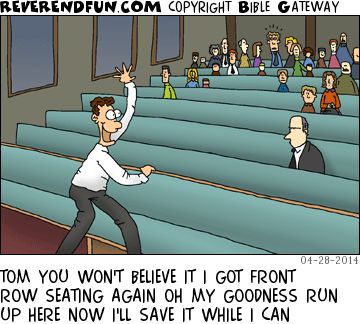
CTU Bible study
CTU Friendly Bible Study series Spring 2023:
Paul’s letter to the Philippians
Weekly – Tuesdays, 1.15pm – 2.15pm at the Quaker Meeting House, York Road, Uxbridge
18th April – 6th June
“This is Paul’s happiest letter. And the happiness is infectious. Before we’ve read a dozen lines, we begin to feel the joy ourselves – the dance of words and the exclamations of delight have a way of getting inside us.” (Eugene Peterson, translation of The Message)
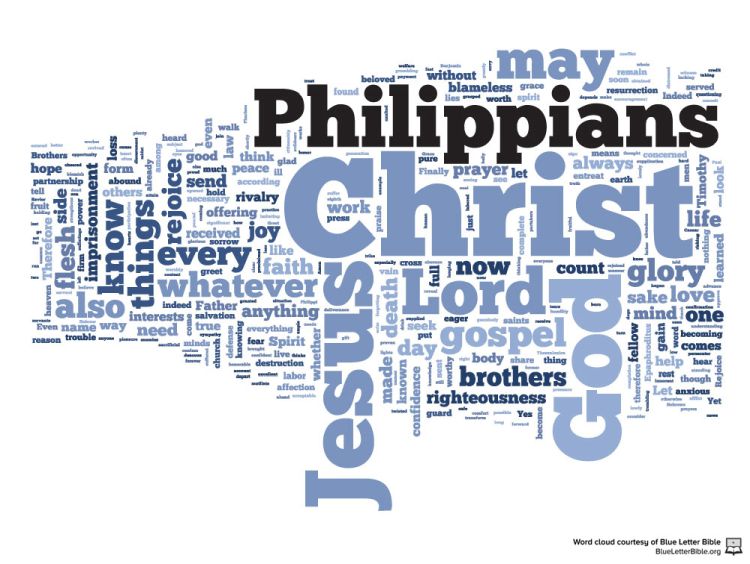
You’re invited to an exploration of the language of the text of Phillipians, comparing many translations and sharing what God is speaking to us through this letter, in our personal experiences, following the reflective format of Quaker-inspired Friendly Bible Study. The ideal is to to walk through the text at a leisurely pace over 8 sessions, but you could drop in when you are able and catch up on this short book on your own. Just 1 hour – starts promptly with optional tea after.
Mike Beranek
Children’s Corner
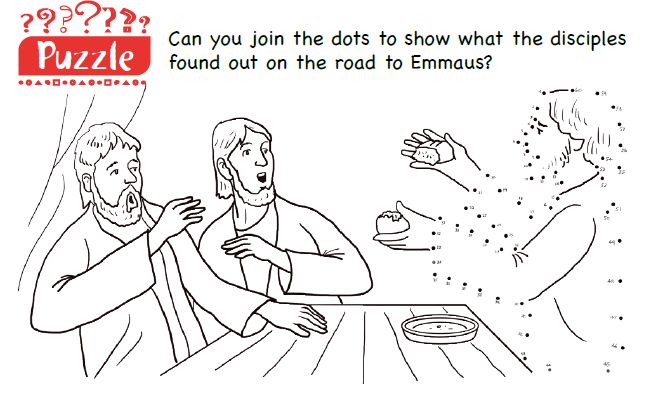
Praying for other churches
This week we hold the following churches in our prayers:
- Eastcote Methodist
- URC at Eastcote and Northwood Hills
Closing prayer
Lord, as we go into this new week,
may we recognise Jesus in everyone we meet.
May our whole lives be a beacon of praise and thanksgiving,
pointing to the one we love.
May we take every chance we get,
to talk about what you mean to us and show our love.
As we share with each other we get to know each other better,
and we grow stronger, and you, O God,
are revealed in a multitude of ways.
Thank you, Lord. Amen.
(Taken from Roots)
